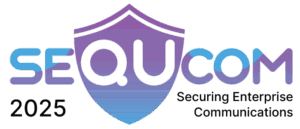
October 16 & 17
Union Halle
Frankfurt am Main
- 00Days
- 00Hours
- 00Minutes
October 16 & 17
Union Halle
Frankfurt am Main
- 00Days
- 00Hours
- 00Minutes
Is your organization ready for the quantum and AI disruption to cybersecurity?
Quantum computing and the growing power of AI are rewriting the rules of cybersecurity. The time to act is now. Existing cryptographic solutions are becoming vulnerable, and organizations that delay action risk exposing their most critical data.
Join seQUcom — a high-level forum shaped by Europe’s foremost experts in quantum-safe cybersecurity.
Over two days, connect with key decision-makers and trusted specialists from industry, government, and research during our networking reception and industry exhibition. Gain strategic insight into the quantum and AI-driven threat landscape, understand regulatory trajectories, and explore concrete solutions like Post-Quantum Cryptography and Quantum Key Distribution. If you’re responsible for securing your organization’s future, this is where smart decisions are made before they become urgent.
Executive Track
Understand exactly why quantum computing and AI (especially AI-driven mathematical advances) pose an immediate and tangible threat to your current cybersecurity posture. Explore actionable strategies from Europe’s leading initiatives in Post-Quantum Cryptography (PQC) and Quantum Key Distribution (QKD). Learn how upcoming regulations will impact your operations, and engage directly with decision-makers, industry experts, and regulators during our high-level networking dinner.
Technical Track
Delve deeply into real-world implementations and practical migration paths for quantum-resistant cybersecurity solutions. Gain direct insights into the ongoing NIST PQC standardization, the latest developments in Quantum Key Distribution, and best practices from companies already preparing their transition. Bring your technical challenges directly to our experts, and shape your organization’s quantum cybersecurity strategy with confidence.
Speakers
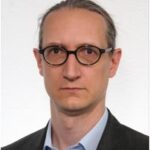
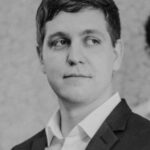
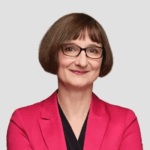
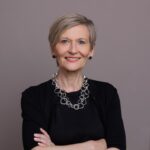
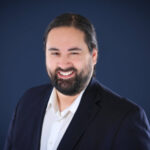
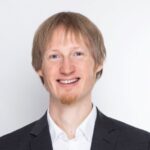
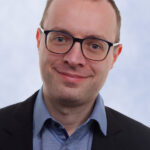
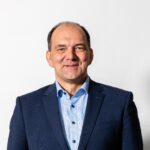
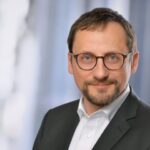
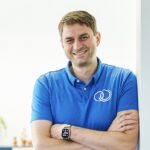
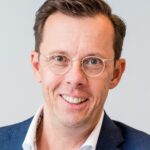
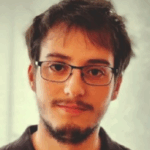
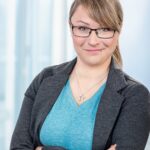
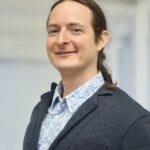
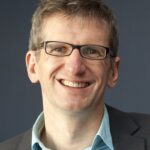
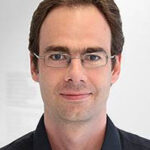
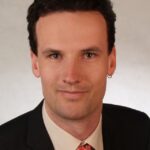
Impressions from previous events
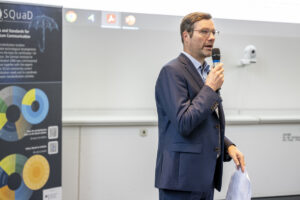
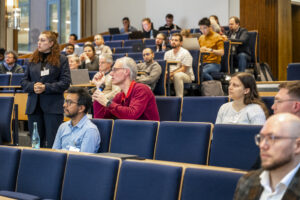
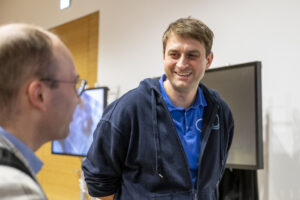
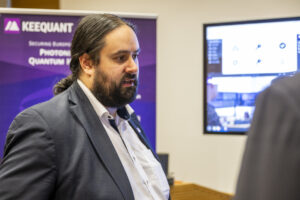
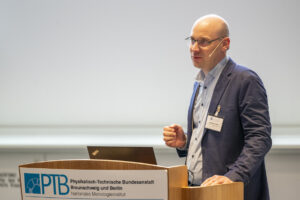
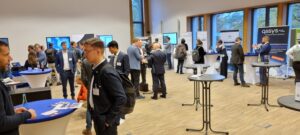
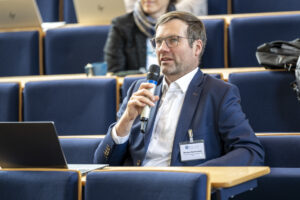
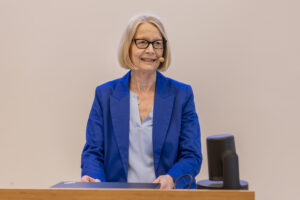
seQUcom is brought to you by...
The BMFTR-funded German umbrella project for quantum communication SQuaD, the German Industry Alliance for Quantum Security DIVQSec and the technical association VDE are proud to present the seQUcom format to you for the first time. Let us introduce the organizing team: KEEQuant GmbH, Physikalisch-Technische Bundesanstalt (PTB), Quantum Optics Jena GmbH, VDE, and BearingPoint GmbH. Together, we are working hard to deliver an outstanding event to you!
Partners and sponsors
We thank our partners and sponsors!
Important dates
- Sep 19 – Early bird registration deadline
- Oct 16 – First conference day
Program
The detailed program is forming now. Talk titles are subject to change. The current version serves as a preliminary overview to help with your planning.
Thursday, Oct 16 - EXECUTIVE TRACK
12:30 – 13:00
Registration & arrival
13:00 – 13:30
Welcome by the organizers
13:30 – 13:50
Threat
State of play: secure communication today
Dr. Felix Wissel
Deutsche Telekom Geschäftskunden GmbH
13:50 – 14:10
Threat
Q-Day: quantum computing threat to cryptography
Christoph Graebnitz
Fraunhofer AISEC
14:10 – 14:30
Threat
Advancing to a Fault-tolerant Quantum Computer – Opportunities and Risks
Dr. Heike Riel
IBM
14:30 – 14:50
Threat
Progress in AI
Dr. Edeltraud Leibrock
Roland Berger
14:50 – 15:00
Threat
Can AI crack cryptography?
Imran Khan
KEEQuant GmbH
15:00 – 15:30
Coffee break & Industry exhibition
15:30 – 15:40
Business
The business perspective: from risks to resilience
Dr. Ulrich Seyfarth
BearingPoint
15:40 – 16:00
Business
Preparing for the quantum era
Daniel Goß
Bundesagentur für Arbeit
16:00 – 16:20
Business
IT security for Bundesbank in the age of the quantum computer
Thomas Kraus
Deutsche Bundesbank
16:20 – 16:40
Solutions
Solution: Post-Quantum Cryptography
Dr. Helmut Grießer
ADVA Network Security
16:40 – 17:00
Solutions
Solution: Quantum Key Distribution
Dr. Kevin Füchsel
Quantum Optics Jena
17:00 – 17:30
Coffee break & Industry exhibition
17:30 – 18:00
Roadmap
Panel discussion: What is necessary until Q-day?
Dr. Oliver Muth, Bundesdruckerei
Daniel Goß, Bundesagentur für Arbeit
Dr. Felix Wissel, Deutsche Telekom
Prof. Dr. Christoph Marquardt, FAU Erlangen
Dr. Heike Riel, IBM
Thomas Kraus, Deutsche Bundesbank
18:00 – 18:30
Roadmap
Start small/smart – think big: migration to quantum-safe
Thomas Lebeth
dacoso
18:30 – 22:00
Networking reception (on-site)
Friday, Oct 17 - TECHNICAL TRACK
08:30 – 09:00
Registration & arrival
09:00 – 09:30
Showcases
Showcase 1: Migration to quantum key distribution (QKD)
Robin Boehn
Deutsche Telekom Technik GmbH
09:30 – 10:00
Showcases
Showcase 2: Migration to quantum-safe solutions at BWI
Dr. Maja Kierdorf & Martin Zauchner
BWI
10:00 – 10:30
Tech / Solutions
Exhibitor Tech/Solutions presentations
Quantum Optics Jena, KEEQuant, BearingPoint, QuKommIn
10:30 – 11:00
Coffee break & Industry exhibition
11:00 – 11:30
Ask the experts
PQC deep-dive & NIST standardization
Prof. Dr.-Ing. Christof Paar
Director, Max Planck Institute for Security and Privacy
11:30 – 12:00
Showcases
Experience in QuNET – Transmitting IDs – Bundesdruckerei use case
Nicolas Perlot
Fraunhofer Heinrich-Hertz-Institut
12:00 – 12:30
Tech talk
Tech Talk: Hybridization, crypto-agility and symmetric key infrastructure
Dr. Daniel Minder
evolutionQ GmbH
12:30 – 13:00
Tech talk
From research to application: Integrated photonics for quantum applications
Mathias Kaschel
IMS Chips
13:00 – 14:00
Farewell & Time for discussions & Industry exhibition
Venue
- Union Halle in Frankfurt am Main, Germany
- Easily reachable by public transport (close to Frankfurt main train station)
- Thursday, Oct 16 and Friday, Oct 17
- 150 participants
- Industry exhibition
- High-level networking reception
- Space for discussions
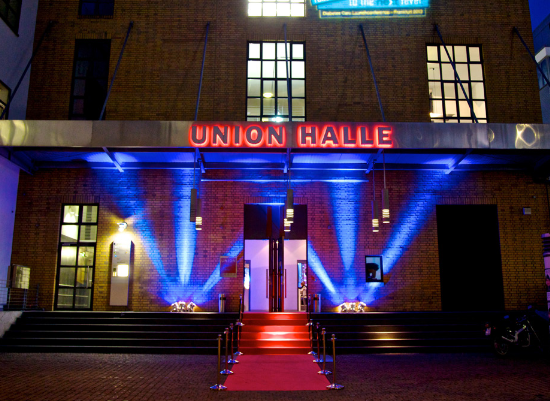
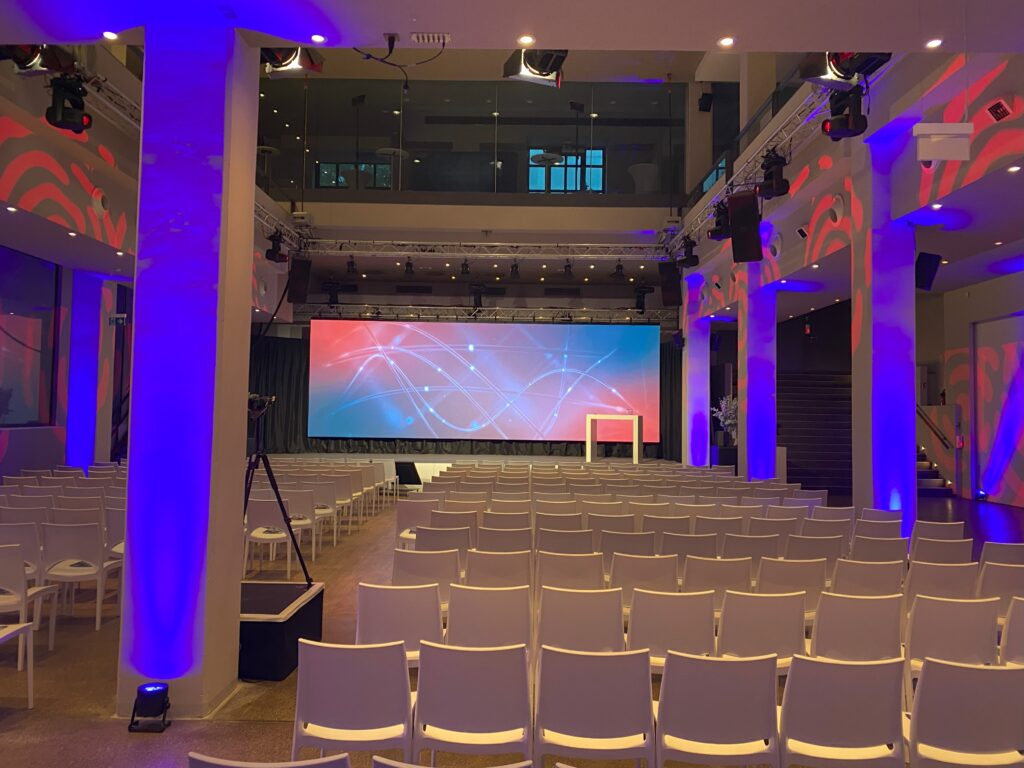
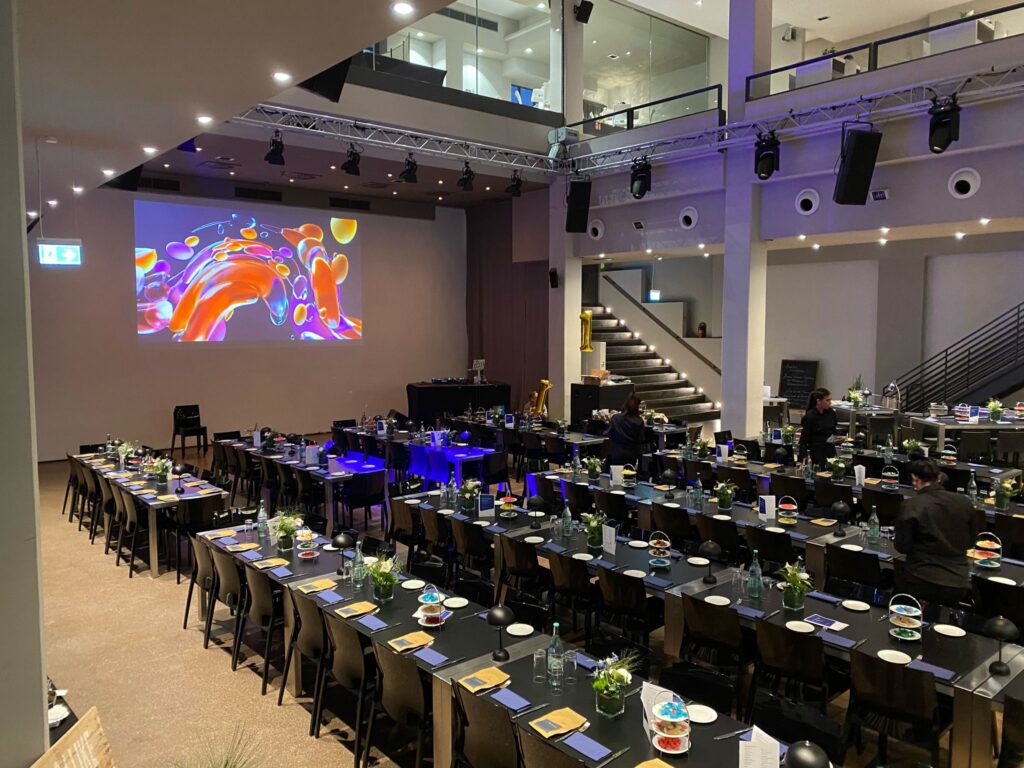
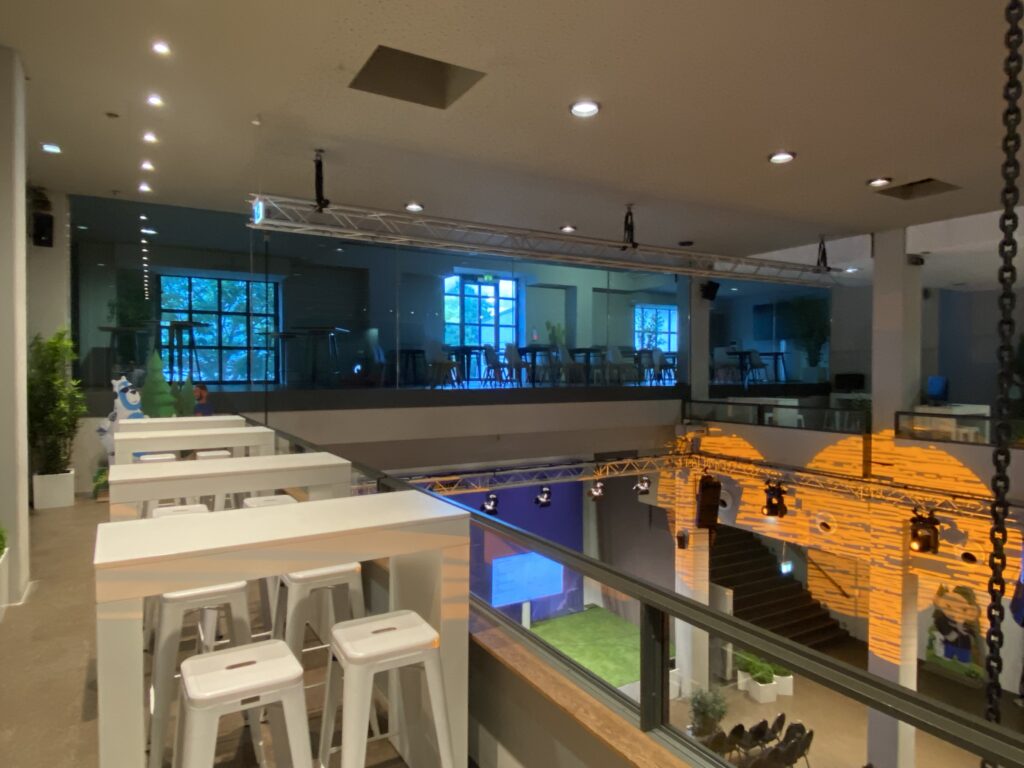
Registration
eigistration has now opened! Click the button below to register for the event via the VDE portal.
The prices for registration are:
- Early Bird: 300€
- Regular: 350€
There also the possibility to register on-site!
Also be sure to sign up for our newsletter to stay informed.
Speakers

Dr. Felix Wissel
Business Development Public Sector
Deutsche Telekom Geschäftskunden GmbH
Theoretical physicist, Diploma degree in solid state physics, ph.D. degree in statistical physics; since 15 years in telecommunication business in various roles and responsibilities, mainly around technology, innovation and engineering; strong focus on quantum secure communications for the last 10 years; contributions to several national and European R&D projects (CiViQ, QuNet, DemoQuanDT), technical lead in EuroQCI detailed design study (QSAFE); now Chief Solution Designer for NOSTRADAMUS and Project Coordinator for PETRUS (the EC’s Coordination & Support Action for EuroQCI)

Christoph Graebnitz
Scientist and Technical Lead for Quantum Cryptanalysis, Fraunhofer Institute for Applied and Integrated Security (AISEC)
Current notable projects include the Bavarian Competence Center for Quantum Security and Data Science (BAYQS) and the BMBF-funded project “Quantum Algorithms for Applications, Cloud & Industry” (QACI).
His work focuses on quantum cryptanalysis—that is, studying and mounting attacks on cryptographic schemes using quantum computing techniques.
Another key area is the development of privacy-preserving anonymous-credential systems.
He also has many years of experience in developing cryptography concepts for Common Criteria and VSNfD certifications, as well as in vulnerability management for complex IT systems.

Dr.-Ing. Heike Riel
Head of Science of Quantum and Information Technology and Lead of IBM Research Quantum Europe at IBM ResearchHeike Riel is IBM Fellow, Head of Science of Quantum and Information Technology and Lead of IBM Research Quantum Europe at IBM Research. She is responsible for leading the research agenda of the Science of Quantum and Information Technology department aiming to create scientific and technological breakthroughs in Quantum Computing, Physics of Artificial Intelligence, Nanoscience and Nanotechnology, Precision Diagnostics and Smart System Integration.

Dr. Edeltraud Leibrock
Global Managing Director Innovation & Senior Partner Digital at Roland Berger
Dr. Edeltraud Leibrock is a senior partner in our Digital Platform and Global Managing Director, responsible for innovation worldwide. Edeltraud Leibrock has been with Roland Berger’s Digital Practice since 2023. She has extensive experience in strategy consulting and has advised clients in the strategic areas of technology, innovation, digitalization, AI, and transformation. She has also held senior positions in the banking industry, including Chief Operating Officer on the Executive Board of one of the world’s leading development banks and Group Chief Information Officer of a major public bank in Germany. Edeltraud Leibrock is involved in the Fraunhofer Technology Transfer Fund and the Center for Artificial Intelligence Hamburg, among other things. She studied physics and biology at the University of Regensburg and earned her doctorate in physics from the Technical University of Hamburg.

Imran Khan
Managing Director, KEEQuant GmbH
KEEQuant acts as a one-stop shop for Quantum Key Distribution (QKD), Key Management Systems (KMS), and hybridized Post-Quantum Cryptography (PQC) solutions. He studied quantum physics and spent over a decade at the Max Planck Institute for the Science of Light in Erlangen leading to numerous scientific publications and a leading role in German and European projects like OPENQKD, CiViQ, QCI4EU, SEQRET, and QuNET. Imran Khan is also active in various standardization committees and is a co-founder of the German Industrial Alliance for Quantum Security (DIVQSec), where he currently serves as one of its two spokespeople.

Daniel Goß
Technical Manager for PKI and email encryption, Trust Center Manager for the Federal Employment Agency

Dr. Ulrich Seyfarth
Manager for Quantum Technologies at BearingPoint
Ulrich Seyfarth is managing and developing the quantum-related business at BearingPoint. He has decades of experience in the field of quantum technologies. With a PhD in quantum security and quantum computing, collaboration in post-quantum cryptography, and AI research in the field of computer vision, he brings a very broad range of experience to the table. He is leading a growing, diverse team of technology and business experts that are leading and technically contributing to projects regarding PQC and QKD with well-known results like the QKD implementation attack study. With his team he offers a broad portfolio regarding quantum security to clients from risk management to migration, integration and technology.

Thomas Kraus
Deutsche Bundesbank
Thomas Kraus is a member of the leadership team at “Explorative IT,” the Bundesbank’s first fully agile division within the IT department. As a co-leader, he is responsible for shaping the strategic direction of IT Innovation and Trend Management, with a focus on identifying and implementing emerging technologies. Since 2018, he has been instrumental in enhancing the Bundesbank’s innovation capabilities, playing a key role in establishing its current innovation environment. His work emphasizes the practical application of future technologies, the development of digital solutions, and fostering organizational adaptability. This includes not only upskilling employees but also redefining job roles and profiles to align with new or evolving competencies.

Dr. Helmut Grießer
Director Advanced Technology at Adva Network Security GmbH
Holding a degree in Communications Engineering and a PhD in Channel Coding, he has nearly 25 years of experience in the optical network industry. In recent years the topic of quantum-safe networks gained relevance with contributions to multiple national and European R&D projects (like Quasimodo, OpenQKD, DemoQuanDT, and several QuNET+ projects), as well as EuroQCI design studies. In his current role he works with a team of experts dedicated to various aspects of applied post-quantum cryptography.

Kevin Füchsel
CEO at Quantum Optics Jena GmbH
Kevin studied physics at the Friedrich Schiller University Jena and works in the field of nanotechnology and semiconductors during his dissertation. He works more than seven years as senior director business development and marketing at the Fraunhofer Institute of Applied Optics and Precision Engineering IOF and has profound knowledge in the development and implementation of innovation and strategy processes. In 2020 he was one of the founding members of Quantum Optics Jena GmbH. Since then, he has been the CEO of the company. The QOJ team develops quantum-based cyber security solutions and photonic hardware for quantum computing and imaging.
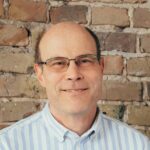
Dr. Oliver Muth
Principal Scientist Materials & Quantum Systems at Bundesdruckerei
Dr. Oliver Muth, born in 1968, studied chemistry in Marburg (Germany) and Frankfurt am Main. After his diploma 1994 in Analytical Chemistry he went from 1995 – 2000 with Fraunhofer Institute (ICT, Pfinztal, Germany). During that time he rewarded his Ph.D. in Technical Chemistry in 1998 at the Technical University Darmstadt.
Since 2000 he is in charge within the R&D-Department at Bundesdruckerei GmbH / Berlin. Actually, he works within the Innovations Department as a Principal Scientist Materials & Quantum Systems and is responsible for and Quantum-applications project together with the Federal Ministry of Finance. He is an expert for Ink Jet technologies, RFID and printed electronics as well as luminescent high security features for banknotes, postal & revenue stamps. He is also one of the inventors of Innosec® Fusion, Polycore®, the Imageprinting-technology in German ID-Documents.
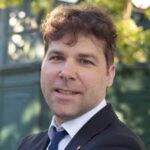
Prof. Dr. Christoph Marquardt
Chair of Optical Quantum Technologies at FAU Erlangen
Christoph Marquardt owns the Chair of Optical Quantum Technologies at the Friedrich-Alexander-Universität Erlangen-Nürnberg and is the head of the quantum information processing group at the Max Planck Institute for the Science of Light in Erlangen. The topics of his research cover a broad range of quantum optics and quantum information experiments, from nonlinear photonics to satellite-based quantum key distribution. Christoph Marquardt served in advisory groups for the European Union and German government and is a co-founder of the start-up KEEQuant. He is active in several EU and national quantum communication research projects and is taking care of the architecture of the German BMBF QuNet initiative on quantum key distribution and the scientific lead of the ESA EAGLE-I mission on satellite-based quantum cryptography.

Thomas Lebeth
Vice President Advanced Technologies & Innovation at dacoso GmbH
Dr. Thomas Lebeth is Vice President Advanced Technologies & Innovation at dacoso GmbH. He is responsible for the development of new business areas through innovations in IT communication and system solutions to ensure sustainable growth through new technologies. He is also responsible for research and development projects and the protection of intellectual property and involves dacoso in strategic alliances and standardisation programmes. His current focus is on quantum-safe encryption solutions.
Thomas Lebeth has more than three decades of experience in the telecommunications industry
and has gained extensive management experience with system integrators and manufacturers of
optical network solutions.

Robin Boehn
Deutsche Telekom Technik GmbH
Robin Böhn is currently pursuing a master’s degree in IT-Security, with a focus on software and network security. Beyond a keen interest in cryptography, he has over 5 years of experience working in Quantum Key Distribution Network (QKDN) R&D. Robin works as an IT-Security Manager at Deutsche Telekom Technik and has contributed to several notable projects such as DemoQuanDT, QSNP, and QSAFE/EuroQCI.

Dr. Maja Kierdorf
Technology Lead Quantenkommunikation at BWI GmbH
Dr. Maja Kierdorf studied astrophysics at the University of Bonn and subsequently worked as a research associate at the Max Planck Institute for Radio Astronomy, completing her PhD in 2019. Since 2020, she has worked in innovation and technology management at BWI GmbH, where she is the technology lead for quantum communication since 2022.

Martin Zauchner
Security Advisory Management at BWI GmbH
After his military service, Martin Zauchner was a lecturer for several cyber security topics at the Wilhelm Büchner Hochschule. Martin has two M.Sc., one in Mathematical Engineering the other in Innovation and Technology Management. Since 2023 he is employed at BWI GmbH as a Cyber Security/Cyber Defense Consultant with PQC-Migration being one of his technical responsibilities.

Prof. Dr.-Ing. Christof Paar
Director, Max Planck Institute for Security and Privacy
Ph.D. in engineering from the Institute for Experimental Mathematics at the University of Essen (1994). Worcester Polytechnic Institute in Massachusetts (1995–2001). Ruhr University Bochum (2001–2019). Research professor at UMass Amherst (2008/09 and 2014–2016). Founding director at Max Planck Institute for Security and Privacy in Bochum, Germany and affiliated professor at the University of Massachusetts Amherst (UMass Amherst). Research in the area of embedded security. His group is currently working on hardware Trojans, technical and cognitive aspects of (hardware) reverse engineering, physical layer security and the security of cyber-physical systems. One of the spokespersons of the Excellence Cluster CASA – Cyber Security in the Age of Large-Scale Adversaries.

Dr.-Ing. Nicolas Perlot
Group Leader Free-Space Optical Systems at Fraunhofer Heinrich-Hertz-Institute
Nicolas Perlot received his PhD in electronics engineering from the University of Valenciennes, France, in 2005. He has been with the Fraunhofer Heinrich-Hertz Institute since 2012, where he leads the “Free-Space Optical Systems” group. He previously worked for the German Aerospace Center (DLR) at the Institute of Communication and Navigation. His research interests are fiber and free-space optics, classical and quantum communications.
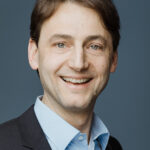
Dr. Daniel Minder
Product Manager at evolutionQ GmbH
Daniel is leading the QuNET+ISQKMS project for the development of hardened quantum key management systems and he is responsible for evolutionQ’s BasejumpSKI product, which provides quantum-safe and long-term secure keys based on various cryptographic techniques. In addition, he is actively driving standards in the ETSI QKD working group and is a member of the TeleTrusT group on crypto agility.
After studying computer science and receiving a Ph.D. from the University of Duisburg-Essen, he worked in the Hardware Security Modules business, first as a software developer and then as Product Manager, before joining evolutionQ in 2022.

Mathias Kaschel
IMS Chips
Mathias Kaschel is the head of the Silicon Photonics business unit and the New Semiconductor Devices division at IMS CHIPS. His research topics for his Ph.D. in Electrical Engineering covered Silicon-Germanium photodiodes and Silicon Photonics for data communication. In 2014 he joined IMS CHIPS to enable an integrated photonics line and to develop new MEMS applications and is now leading the business unit consisting of integrated photonics, GaN power devices, flexible electronics and assembly and packaging. The business unit focuses on enabling technologies for photonics, quantum sensing and computing as well as products for life sciences, green energy and medical.
Sponsoring and exhibition
Securing Enterprise Communications – From Quantum Risk to Resilience






